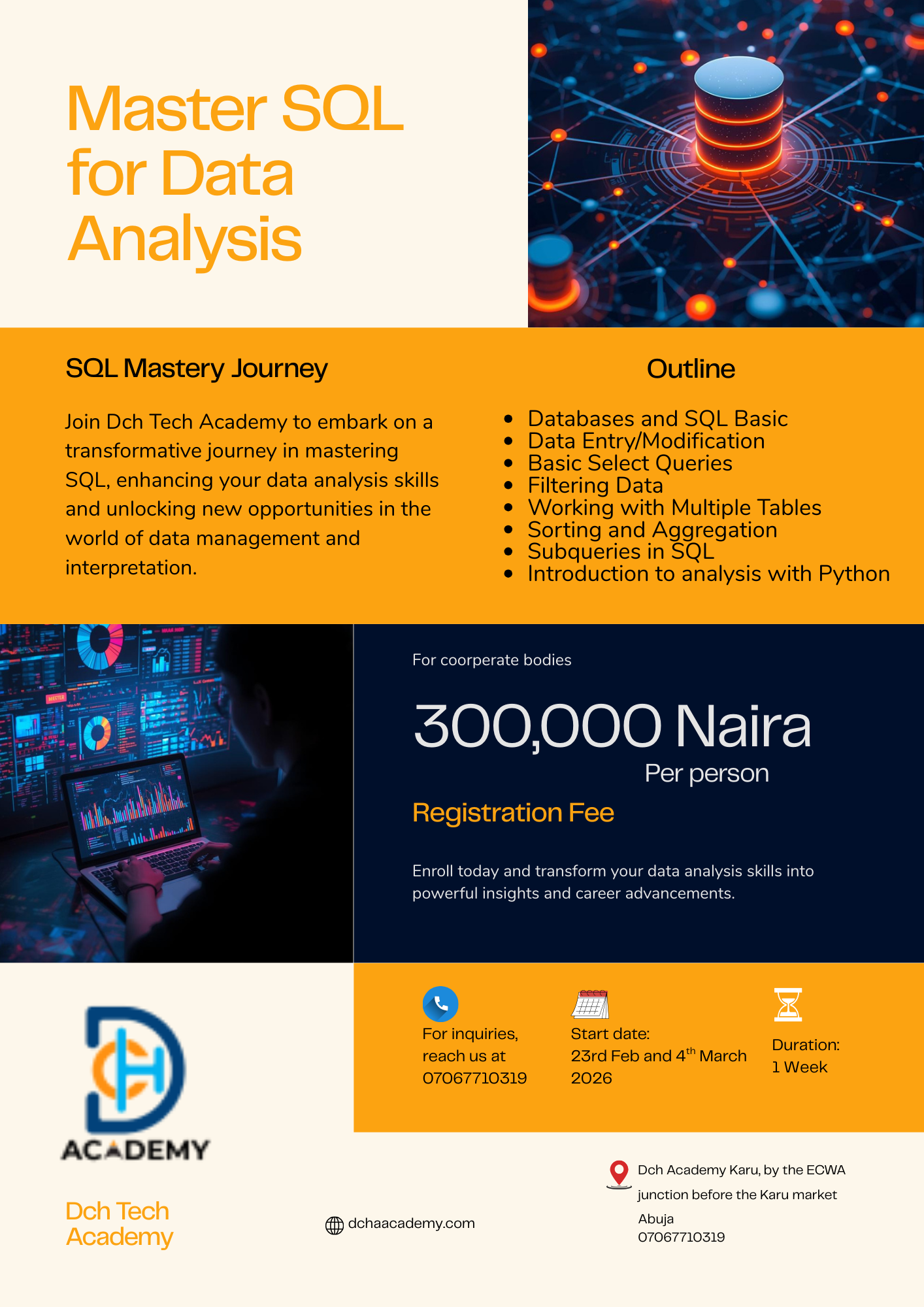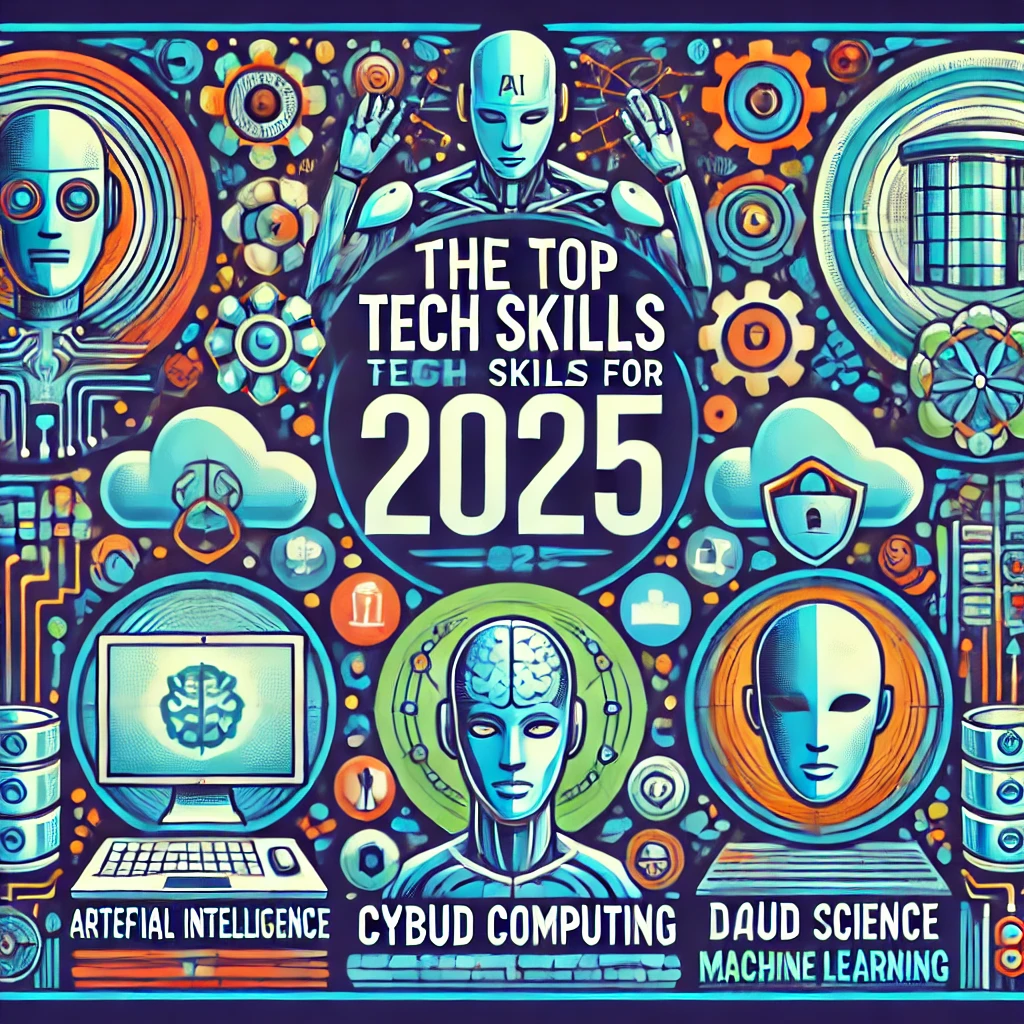Darl Creative Hub Academy Data Analysis Training in Karu, Abuja:
If you're looking for a comprehensive and practical data analysis training program, consider Darl Creative Hub academy's training in Karu, Abuja. DCHA training equips aspiring data analysts with the essential skills and knowledge needed to succeed in the field of data analysis such as; statistics, programming (Python and R), data visualization (Tableau and Power BI), and data analysis techniques. You can learn more about the program and enroll here.
In this article, we will explore the roadmap to success for aspiring data analysts, we will delve into the essential skills and qualifications required, the various industries and sectors that offer abundant career opportunities, and the potential salary prospects. so regardless of your background – recent graduate, career changer, or upskilling professional – this article equips you with valuable insights and guidance to launch your lucrative data analysis career.
Darl creative hub academy: Why data analysis is a lucrative career path
Data analysis has become a crucial component of decision-making processes across industries. Companies are increasingly relying on data to gain insights and drive strategic initiatives. This growing demand for data-driven decision-making has created a lucrative career path for data analysts.
One of the key reasons why data analysis is a lucrative career choice is the high demand for skilled professionals in the field. As businesses strive to stay competitive and make informed decisions, they need individuals who can collect, analyze, and interpret data to provide actionable insights. This demand for data analysts is expected to grow exponentially in the coming years.
Data analysts have the opportunity to work in a variety of industries and sectors. From finance and e-commerce to healthcare and government, organizations across different sectors rely on data analysis to optimize their operations and drive growth. This versatility allows data analysts to explore diverse career paths and find opportunities that align with their interests and passions.
The lucrative nature of data analysis extends beyond its starting salary. With experience and continuous learning, data analysts can progress to senior positions like data scientists, data architects, or even leadership roles.
Skills required for a successful career in data analysis: Darl creative hub academy data analysis training karu, Abuja
Let's explore some of the key skills that aspiring data analysts should possess:
- Analytical Skills: A data analysts need to have strong analytical skills to effectively collect, organize, and interpret data. They should be able to identify trends, patterns, and correlations in large datasets and derive meaningful insights.
- Statistical Knowledge: A solid understanding of statistics is crucial for data analysts. They need to be familiar with statistical concepts and methods to accurately analyze and interpret data.
- Basic programming language like python and R
- Data Visualization: Being able to present data in a clear and visually appealing manner is essential for data analysts. They should be skilled in using data visualization tools like Tableau or Power BI to create impactful visual representations of data.
- Domain Knowledge: Having domain knowledge in the industry or sector you work in can provide valuable context for data analysis. Understanding the specific challenges and opportunities within a particular industry can enhance the quality of insights derived from data.
- Communication Skills: Data analysts need to effectively communicate their findings to non-technical stakeholders. They should be able to translate complex data into actionable insights and present them in a clear and concise manner.
By continuously honing these skills, aspiring data analysts can position themselves for success in this field.
Educational pathways for becoming a data analyst
These are some of the educational pathways to becoming a data analyst.
- Bachelor's Degree in Data Science or a Related Field: Pursuing a bachelor's degree in data science, statistics, mathematics, or a related field can provide a strong academic background in data analysis.
- Master's Degree in Data Science or Business Analytics: an extension of bachelor's degree, it specializes in data analysis, a master's degree can offer advanced coursework and research opportunities. These programs dive deeper into topics like predictive analytics, data mining, and statistical modeling.
- Online Courses and Bootcamps and website: Online courses and bootcamps are a popular option for individuals looking to upskill or make a career switch. Platforms like Darlcreativehub.com and others offer a wide range of courses in data analysis and related fields. These courses are often self-paced and allow learners to gain practical skills, and for deeper understanding of theoretical terminologies platforms like Wikipedia goes a long way.
- Certifications: Earning industry-recognized certifications can showcase your expertise in data analysis. Certifications like the Certified Analytics Professional (CAP) or the Microsoft Certified: Data Analyst Associate demonstrate your skills and can increase your credibility in the job market.
Darl creative hub academy data analysis training karu, Abuja exposes you to right certifications and professional development
In the ever-evolving field of data analysis, staying updated with the latest tools, techniques, and trends is crucial for professional growth. Here are some certifications and professional development opportunities that can help data analysts stay ahead:
- Microsoft Certified: Azure Data Scientist Associate: This certification validates a data analyst's ability to use Azure technologies to build, train, and deploy machine learning models. It demonstrates proficiency in working with big data and applying data science techniques.
- Tableau Desktop Specialist Certification: Tableau is a widely used data visualization tool, and earning a Tableau certification can showcase your expertise in creating impactful visualizations and dashboards.
- Certified Analytics Professional (CAP): The CAP certification is designed to validate the skills and knowledge of analytics professionals across various domains.
- Online Learning Platforms: Platforms like Darlcreativehub.com, DataCamp, LinkedIn Learning, and Kaggle offer a wide range of online courses and tutorials on data analysis, machine learning, and related topics. These platforms provide opportunities to learn from industry experts and gain practical skills.
Darl creative hub academy training Karu, Abuja is designed to equip individuals with the various certifications and exposure they need (eg. conferences and seminars).
Job opportunities and salary potential for data analysts
The demand for data analysts continues to rise, and job opportunities in this field are abundant across industries. Let's explore some of the potential job roles and salary prospects for data analysts:
- Data Analyst: As a data analyst, you will be responsible for collecting, analyzing, and interpreting data to provide insights and support decision-making. Data analysts can work in various industries, including finance, marketing, healthcare, and technology.
- Business Analyst: Business analysts leverage data analysis to identify business trends, optimize processes, and drive strategic initiatives. They work closely with stakeholders to understand business requirements and translate them into actionable insights.
- Data Scientist: With experience and advanced skills, data analysts can transition into data scientist roles. Data scientists focus on developing and implementing advanced analytics models and algorithms to solve complex business problems.
- Data Engineer: Data engineers are responsible for designing and building data pipelines and infrastructure to support data analysis. They work closely with data analysts and data scientists to ensure data is accessible and of high quality.
In terms of salary potential, data analysts can expect competitive compensation packages. According to salary data from Glassdoor, the average annual salary for data analysts in the United States is around $65,000 to $95,000, depending on experience and location. With additional experience and specialization, data analysts can earn even higher salaries.
Industries and sectors that heavily rely on data analysts
Data analysis is an integral part of decision-making across various industries and sectors. Let's explore some of the industries that heavily rely on data analysts:
- Finance: Banks, insurance companies, and investment firms rely on data analysis to assess risk, detect fraud, and make informed investment decisions.
- Marketing (customers, trends, campaigns).
- Healthcare: analyze patient data, clinical trials, and healthcare outcomes to improve patient care, identify disease patterns, and optimize operations.
- Technology: leverage data analysis to gain insights into user behavior, improve product performance, and drive innovation.
- E-commerce: Online retailers use data analysis to understand customer preferences, personalize shopping experiences, and optimize pricing strategies.
- Government: Government agencies collect and analyze data to inform public policies, optimize resource allocation, and improve governance.
These are just a few examples, and the demand for data analysts extends to numerous other industries and sectors. The versatility of data analysis skills allows professionals to find opportunities in areas that align with their interests and passions.
Steps to build a successful career as a data analyst
Building a successful career as a data analyst requires a combination of education, practical experience, and continuous learning. Here are some steps to help you kickstart your journey:
- Build your skillset (analytical thinking, statistics, programming, visualization) through courses or programs like Darl Creative Hub's data analysis training.
- Build a data analysis portfolio to showcase your skills to employers.
- Gain practical experience (internships, freelance) to boost your resume and industry knowledge. Consider data analysis programs with internship opportunities, like Darl Creative Hub.
- Network (conferences, online) to build connections and stay industry-aware.
- Continuously learn and upskill: Take advantage of online courses, certifications, and professional development opportunities to upskill and stay ahead.
- Seek Mentorship: Experienced guidance can be invaluable in your data analysis journey. Darl Creative Hub academy data analysis training Karu focus on mentorship.
Master these steps and commit to lifelong learning for a thriving data analysis career.
Challenges and future trends in the field of data analysis
Some of these challenges include;
- Data Privacy & Security: Growing data volumes necessitate strong data protection skills for analysts.
- Ethics and Bias: Data analysts need to be aware of the ethical considerations involved in data analysis. Ensuring fairness, transparency, and avoiding biases in data interpretation is essential for responsible decision-making.
- Advanced Technologies: The field of data analysis is evolving rapidly, with advancements in artificial intelligence, machine learning, and big data. Data analysts need to stay updated with these technologies to leverage their full potential.
- Interdisciplinary Collaboration: Collaboration between data analysts, domain experts, and stakeholders is crucial for successful data analysis. Data analysts should be able to effectively communicate and collaborate with professionals from different disciplines.
Future trends
the field of data analysis is expected to continue growing and evolving. Some key trends to watch out for include:
- Automation and AI: Automation and AI technologies are increasingly being integrated into data analysis processes. Data analysts will need to adapt and learn how to leverage these technologies to enhance their efficiency and accuracy.
- Predictive Analytics: Businesses seek proactive insights, driving demand for advanced data analysis skills.
- Data Visualization: Mastering visual storytelling is key for clear communication of insights to non-technical audiences.
Ready to embark on your data analysis journey? Start today!


















